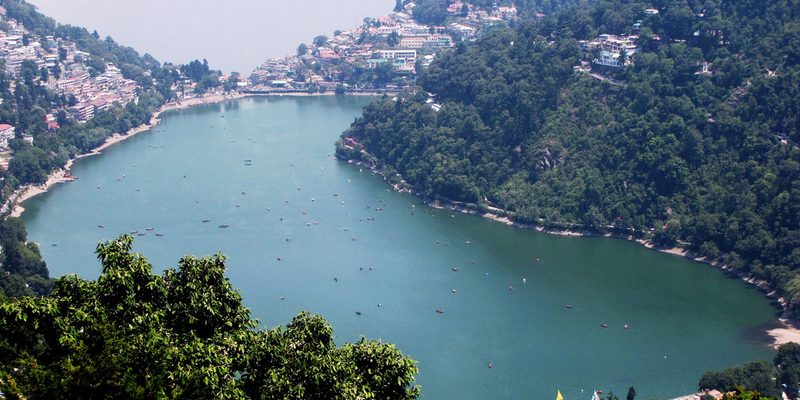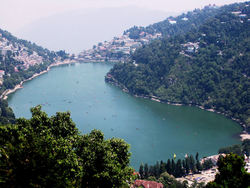ACCCRN: Small Grants Fund to help two cities fight problems of water and waste

Nainital and Gangtok – two mountain cities of India – have recently been awarded the Small Grants Fund provided by the Rockefeller Foundation and facilitated by ICLEI Local Governments for Sustainability South Asia.
While Nainital is a tourist town from the Kumaon region of Himalayas in Uttarakhand and is known for its fresh water lake, Gangtok is the capital of Sikkim, a state in the Northeast of the country. Both the cities have identified their pilot projects on which the cities will use these funds in an effort to build climate resilience.
Mainstreaming the role of ecosystem services in water supply of Nainital
In Nainital, the record decline in lake level in the spring and summer of 2016 (over 20 feet decline) has raised concerns amongst the government authorities, environmental agencies and local people. The lake that provides several ecosystem services caters to 90 percent of the water demand of the city. It is also a tourist attraction that reaps economic benefits for the city.
The reasons attributed to the rapid decline in level of water in the lake include: (1) early receding of monsoon in 2015 (2) deficit in winter rainfall (79 percent between Jan – Feb 2016, as reported by Uttarakhand Meteorological Department) (3) encroachment and degradation of recharge zones (4) construction in the hill slopes reducing infiltration and enhancing siltation.
To help the city battle water management related problems, a project has been proposed by Centre of Ecology Development and Research (CEDAR), in collaboration with the Nagar Nigam. As a part of the project, the team would work to produce documents and maps that can help further planning, review current levels of protection in forest areas, develop an ecological sustainability plan for the city, and clean drains to improve water supply system. Key outcomes of the project include:
• Sensitisation of key stakeholders to the role of watershed ecosystem services in maintaining water supply and the lake in Nainital
• Initiation of catchment and recharge-friendly outreach activities
• Initiation of steps to address the gaps in protection of critical zones in the catchment
• Ecologically sustainable water management for the city of Nainital, and
• Improvement of present urban water system in the city of Nainital
Climate resilient solid waste management infrastructure for Gangtok
The vegetable market at Kanchenjunga Shopping Complex in Gangtok, Sikkim generates around one tonne of vegetable waste in a day, treated as waste and transported to a landfill site. There is no proper mechanism of collection of waste in the respective area. Consequently, the waste sometimes gets dumped into jhoras (small streams that act as storm water drainage), thus leading to the clogging of the drains and causes landslides in the area which impacts on human life, infrastructure and eventually, causing financial loss. Besides, if the vegetable waste is not collected and processed on time then it spreads foul smell in the vicinity and also becomes breeding ground of flies which spread vector borne diseases in the area. The problem can increase with increasing temperatures in coming years.
To combat the menace of waste and unleash its reuse potential, the Gangtok Municipal Corporation has proposed to establish a “Bio Composting Plant” in the shopping complex. The compost plant will treat segregated waste and process it into compost, create mass awareness among citizens as well as stakeholders about benefits of segregation of waste and create a source of revenue as the treated waste can be sold in the market, thereby generating revenues for sustaining the plants as well as employing trained manpower under the supervision of the Corporation to run the plant. The main outcomes expected from the project are:
• The Composting Plant at the Complex will not only help in treating the waste at source on time but will curtail the cost of transporting the waste and reduce the pressure on existing landfill thereby increasing its life
• Collection and processing of the wet waste at source will prevent rampant dumping into streams and drains, keeping them free to carry water and reducing the chances of clogging of jhoras and occurrence of the landslides
• It will improve the sanitary situation of the locality by ensuring timely and effective collection and scientific treatment of all organic waste, thereby improving urban environment by minimising risk to health and properties and environmental risk; and improve ambience of the market place
